Who is an Auntie?
Got significant kids in your life who aren’t *your* kids? This newsletter is for you.
Aunt /ant, awnt/, n. - the sister of one's father or mother; the wife or female partner of one’s father or mother’s sibling (source: Oxford English Dictionary)
Auntie /AN-tee, AWN-tee/, n. - a person of any gender who loves and shows up for children not their own, as well as for the primary caregivers of those children (source: meeeee, Lisa Sibbett, Auntie to the Aunties and grizzled veteran newsletterist of four! full! months!)
I’ve been an Auntie for nearly thirty years, amassing many beloved young people in that time. My siblings have nine kids among them, and then I’ve got a goddaughter and her brother, and the two kids who live in my co-housing community who are in and out of my house all the time, and then several other dear friends’ kiddos besides. A lot of them call me Auntie Lisa, some just Lisa – and one, as a baby, called me “Sasa,” which I loved so much.
When I started The Auntie Bulletin,1 I figured I’d be writing for people much like me – people (mostly women) who are significantly involved in helping to raise their friends’ kids, participating on a weekly, if not daily, basis. But I came to recognize that there are a lot of us, in a lot of different roles, out here showing up for the families we love with whatever frequency we can make work. We are extended family members (grandmothers especially), friends, godparents, step-parents, foster parents, and many (though certainly not all) of the people who work with kids for a living. We are the people who actively seek to show love to children who aren’t our own, and many of us are highly involved in the daily work of childrearing. Researchers call us “alloparents.”
Whereas an “aunt” (in the sense of a parent’s sibling or the partner of a parent’s sibling) may not even know the kids in question, an Auntie adores said kids. An Auntie cares about offering kid-friendly meals, baby-proofs the house, and reads bedtime stories with enthusiasm. An Auntie can be called upon for kid pickups and drop-offs, and – depending on level of daily involvement – is the kind of person who knows where to search when a kid isn’t where we expect them to be. (As a matter of fact, my sister’s kids’ Auntie Ellie performed this miracle on my last visit and saved me from dying of a fear-induced heart attack. I, the kids’ actual aunt, had no idea where to find my missing 8-year-old niece because we live far away and I don’t have that level of day-to-day intel. Ellie knew to check my niece’s friend’s grandma’s house down the street. That’s some deep and rich Auntiehood for you. Ellie wasn’t even flustered – she just found the missing kid, smiled benevolently, and went back to washing strawberries).
Today at The Auntie Bulletin, I explore who *counts* as an Auntie – which is another way of describing who I hope will find and read this newsletter. First I take a quick detour into gender and terminology, explaining where I’m at with the label “Auntie” vis-à-vis men and non-binary people, and inviting you (if that’s you) to weigh in on what you want to be called in the comments. Then I’ll offer a typology of Aunties, including:
Aunties who aren’t technically family
Aunties who are (or are perceived as) men – this one will make more sense in a minute
Grandmothers and other important elders
Step-parents2
Foster parents
Load-bearing Aunties
Aunties who are currently also raising their own children
Aunties who get paid to Auntie
Future Aunties
Aunties to multiple families over a long period of time, who consequently think they know a lot and may be prone to starting newsletters
Now, if you’ve had a chance to read my Welcome to the Auntie Bulletin post, you might recall that I have big dreams of building an Auntie Collective, even an Auntie Movement.3 And if we’re going to make that happen, we first need to be more legible to ourselves and each other. Some of us may already have recognized identities and maybe even communities. (Lookin’ at you again, grandmas! And I’ve got my fingers crossed for you as well, step-parents! And even more so for you, foster parents!). However, a lot of other alloparents – myself included – have a hard time just explaining our role to outsiders, let alone finding others like ourselves to connect with.
So let’s take a crack at increasing Auntie legibility and community, shall we?
Aunties, Uncles, Auncles
Is it apparent that I’ve been using Auntie as a gender neutral term all this time? My thinking is that, given that women have been doing almost all of the work of childrearing for literally all of human history, we get this one. Men are welcome when they choose to join us in equal partnership in the childcare domain, and when I include men in the category “Auntie,” I mean it as a very high compliment indeed. But I want to argue for the feminine term as the umbrella term. An uncle is a male kind of Auntie as a warlock is a male kind of witch. That’s what I hope could catch on.4
I’m mindful, however, that many transgender men and masculine-of-center nonbinary people have had to fight to have their fundamental masculinity recognized. So I’m taking nominations in the comments – FROM TRANS AND NON-BINARY FOLKS ONLY, PLEASE – for suitable terminology. In English, gender-neutral terms referring to the sibling of a parent are still emerging. Google’s top several articles all include “pibling” (a la “sibling” and “nibling”5) – but I worry this term lacks gravitas. “Auncle” is another option I have encountered, as is “Aunxie.” Or we non-Natives might follow the lead of many Indigenous communities and go with “Relative.” As a cisgender woman, deciding how to refer to trans people really isn’t my conversation to have. Yet I broach it because, for the purpose of this newsletter, I think I need a respectful, gender-neutral analogue for “Auntie.” If you’re trans or nonbinary and you care to weigh in, feel free to share your thoughts in the comments, or you can email me anytime at auntiebulletin@gmail.com.
A Typology of Aunties
“By kin I mean those who have an enduring mutual, obligatory, non-optional, you-can’t-just-cast-that-away-when-it-gets-inconvenient, enduring relatedness that carries consequences.” – Donna Haraway
So who are we, the Aunties, anyway? Today I’m offering a preliminary, very overlapping typology, although I guarantee I’ll forget somebody. (Have I mentioned I have long COVID? It’s not great for remembering things). If I leave you out, give me a nudge in the comments and I’ll make sure you get some love sometime soon! (NOTE: I did indeed forget both step-parents and foster parents! If you initially received this post in your email, you won’t have received those sections, but there here now! Read on!) All of the following kinds of Aunties are folks I hope will find and subscribe to this newsletter (please share with them!), and I’m planning to have content for and about all of us in the coming year.
Aunties who aren’t technically family
Hello, fellow Aunties who aren’t technically family! We occupy a weird place, don’t you think? Because we often lack a title like “aunt” or “grandma,” it can be hard to describe our role to outsiders. I have heard myself described by a beloved child, to her friend, as a “great, great, great, great, great, great, really great neighbor.” I have been asked by another small child at the dinner table, “Are you in our family?” (Me and the kid’s parents: “I mean, pretty much?”). I have been mistaken for somebody’s mom many times. (I am not anybody’s mom). While in some cultures, non-familial Aunties are a totally recognized and important thing to be, in mainstream Western society we are scarcely perceived to exist. We are not parents, but neither are we “childfree.” The parent/non-parent binary cannot account for us. We are an enigma wrapped in a t-shirt with a question mark on it.
Aunties who are (or are perceived as) men
Oof. Men who truly pitch in with helping to raise kids, but who are not those kids’ dad or grandfather, are automatically suspected of nasty intentions by much of society, and understandably so. The reality is that many men are, in fact, dangerous to children (fathers and grandfathers included). But on the other hand, many men are wonderful and loving and safe and very good for kids to have around, and I think it would be helpful if, as a society, we had more skillful and discerning ways to think about this. I am not an expert on preventing child abuse by any means, but my gut says that having more trustworthy and loving adults – including men – in a child’s life is a protective factor. I would love your suggestions for who I should try to interview on these issues in 2025. Help an Auntie navigate some tricky territory!
Grandmothers and other important elders
There’s a popular social science hypothesis that grandmothers and other elder women may have been key to early humans’ survival. According to the “grandmother hypothesis,” it is evolutionarily advantageous for women to live well beyond our reproductive years because we can redirect our resources to caring for grandchildren, thus ensuring that more of our descendants survive. In her 2009 book Mothers and Others: The Evolutionary Origins of Mutual Understanding, Sarah Blaffer Hrdy explains that throughout human history, grandmothers may have been “the most reliably beneficial of all alloparents.” Indeed, where foraging was the primary food source for early humans (which was often the case), the presence of a grandmother was more predictive of child survival than the presence of a father.
In societies where basic survival is no longer (or not currently) a concern, grandparents in general, and grandmothers in particular, are still a necessary support for many families – indeed, many are primary caregivers themselves. In the United States in 2021, according to the U.S. Department of Labor, 3.7% of children (2.74 million kids) were being raised by a grandparent, including 3.2% by a grandmother. Grandparents provide a huge amount of (often unpaid but also often enthusiastic) child care work.
The Auntie Bulletin is a strongly pro-grandparent newsletter. Look for posts for and about grandparents (especially grandmas) in 2025.
Step-Parents
Step-parents, I am so curious about what it’s like to be you. Having neither had step-parents nor been one, I don’t have a lot of insight, but I do have a lot of questions: How were you originally introduced to your partner’s kids? How has your level of belongingness and authority with them evolved over time? What was your relationship with the kids like initially, versus now? If your partner has an ex who’s in the picture, what is your relationship with that person like? Do they recognize you as a legit alloparent? Do you recognize yourself as a legit alloparent? Does your partner? Whose job is it to ensure that you have a positive relationship with the kids in your life? Yours? Your partner’s? Your partner’s ex? What books should I read and/or who should I interview about step-parenthood in 2025?
Foster Parents
Foster parents, you are in a truly complicated gray area between parents and alloparents. When I was a kid, I had foster siblings on two occasions. My first foster sister was a student in my mom’s class, a couple of years older than me. She came to live with us for several months (it was tumultuous, but also fun, but also tumultuous), and her brother went to another family in a nearby town. When their mom got clean, they were able to go back home and I don’t think they ever needed to go back into foster care again. My second foster sister was a friend of mine from the swim team. She had already been moving from foster home to foster home before she came to live with us — for complicated and awful reasons, it was not possible for her to be reunified with her birth family — and after a year or so, my parents adopted her. So: two very different outcomes. In one case, my parents were temporary alloparents to the kid; in the other, they became the kid’s (my sister’s) parents, full stop.
Despite these experiences from my childhood, my understanding of the foster system remains pretty limited; many people have almost no knowledge at all. But I do know there are tons of misconceptions. For example, people often don’t understand that in most foster situations, a primary goal is for kids to return to their family. Foster parents, therefore, need to form supportive, loving attachments with the children in their care while at the same time understanding that the best outcome is for those kids to leave. Foster parents also need to refrain from speaking negatively about the kids’ birth parents, regardless of what they privately think or feel. And this is to say nothing of the fact that most foster children have experienced a lot of trauma, almost by definition. Fostering is a super demanding job that requires abundant love and flexibility.
For many or most of us (myself included) fostering children may not be a realistic option. And yet we may still be able to support foster children and the foster system, where the need is immense. In 2025, expect at least one interview with foster parents here at The Auntie Bulletin, as well as opportunities to raise money for organizations that support foster youth. This isn’t my area of expertise, but it is a big area where my heart is. Now collecting nominations for foster youth orgs that the Auntie Collective could support in 2025 — drop ‘em in the comments! And if you are, or have been, a foster parent and would like to tell me about your experience, hit me up at auntiebulletin@gmail.com or just DM me in the Substack app.
Load-bearing Aunties
Any kind of Auntie can be load-bearing (or not): there are load-bearing grandparents and non-load-bearing grandparents, there are load-bearing step-parents and non-load-bearing step-parents, etc. To be load-bearing, an Auntie needs to be around a lot, and needs to be willing and authorized and roll up their sleeves and get in there. Load-bearing Aunties are on regular rotation for childcare duty. They’re the ones (like my nieces’ Auntie Ellie) who know where a lost kid has likely gotten off to. They know how to do bathtime and bedtime and school dropoff, and they are fully authorized to lay down the law when kids act up.
Wouldn’t it be awesome if every family who wanted one had a load-bearing Auntie available? Wouldn’t it also be awesome if every would-be load-bearer had a family to pitch in with? I have written of this before and I am sure to write of it again. I think that more families and Aunties getting together in a load-sharing way would benefit all concerned, as well as benefitting society as a whole. I can attest that, for me, being a load-bearing Auntie is awesome.
Aunties who are currently also raising their own children
Who are you, you mysterious wonders? How do you do it? I know for a fact that you exist, because many of you subscribe to The Auntie Bulletin, but I am just so massively impressed that you manage to parent your own children while also devoting meaningful time to loving and supporting other people’s children. Ann Friedman, who co-authored Big Friendship and writes the excellent newsletter AF Weekly, is one of you. She’s been an Auntie for years, she now has a one-year-old, and I’m interviewing her next month, so everybody tune into that interview so we can learn how the heck it is done. Meanwhile, if you are an Auntie who is also currently raising your own children, please tell us how you manage it in the comments! #villagegoals
Aunties who get paid to Auntie
Hey there, daycare providers and nannies and preschool teachers. Hey, teachers of kids of all ages. Hi, athletic coaches who spend their free time shlepping kids to tournaments on the other side of the state, and hi there, performing arts teachers who stay at the theater with a bunch of shrieking teenagers until 10pm every evening for two weeks before opening night. We at The Auntie Bulletin salute you!
It’s hard to be an Auntie who’s trying to make ends meet on what is often a crap salary, and it’s hard to have the kids you care so much for come and go. I’m thinking about the nannies who form strong attachments and may truly know the children they care for as well as the kids’ own parents do – and then that relationship ends. I’m thinking about the teachers who invest deeply in 20 or 30 kids (elementary) or 120 or 130 kids (middle/high school) per year, and then have to let them go and start all over again the next year. And if they keep up those connections, as some actually do, then over the years they become Auntie to approximately one gajillion young people.
Reader, you may not realize that those who Auntie for a living become repositories of a wealth of practical knowledge by virtue of working with so many different children and families. Although I was a high school teacher myself for several years, I really became aware of this when my sister let me know how much she was learning from a couple of her kid’s daycare teachers. These teachers, she told me, knew sooner than she did that her child had an ear infection, and they had all kinds of good tips and tricks for sleep training. My sister’s oldest is now 8 years old and those teachers have become full-fledged, permanent family Aunties.
Future Aunties
According to the ongoing Auntie Bulletin reader survey,6 something like a quarter of this newsletter’s readers are not currently very involved in the lives of loved ones’ kids, but hope to be in the future.
I love that we have so many would-be Aunties here. Since launching this newsletter, I’ve received a lot of lovely feedback that encountering real, meaningful depictions of everyday Auntiehood is helping readers to think about the families and communities they want to build – regardless of whether they have children. These are among my favorite messages to receive. In 2025, look for posts and resources not only on how to decide whether to have kids, but also how to broach conversations about becoming more involved in the lives of the families you love, how to get in there and be actually helpful when a new baby comes, and lots more.
Super Turbo Mega Aunties!
We are the Aunties to many. We’ve been at this for a while. While we may not have kids of our own, we’ve developed some useful skills (quick diapering, carseat installation, kid whispering) and some cross-family perspective that can be legitimately helpful for parents.
What’s that you say, dear parent friend? The internet says your child was supposed to have learned their letter sounds by now? Well, we know half a dozen kids who entered kindergarten without knowing all their letters, and most of them are reading and writing just fine. We also know a couple kids who continue to struggle with literacy, and we can tell you what other parents who we know have found helpful in getting support for their kid. In fact, better yet, we’ll introduce you.
What’s that? Your kid will not go to sleep no matter what you do and you are hanging onto your sanity by a thread? Do we know anyone who’s tried giving their kid a melatonin gummy before bedtime? Yes, in fact we know several. What do you want to know?
What? You fear that when your child reaches adolescence they will begin to loathe you? You believe this outcome to be inevitable? Allow us to offer several reassuring counterexamples from our large circle of acquaintance.
For all of human history, societies have leaned on the wisdom of people (mostly women) who deliver and help to raise other people’s children: the midwives and healers, the grandmothers and childminders. And while this work has often been disrespected, diminished, and demanded in return for little or no payment, there’s a tradition as old as history here, which deserves our deepest respect because it is arguably the most important work humans do. As Angela Garbes writes in her 2022 book Essential Labor, care work is “some of the only truly essential work…. Without people to care for our children, we are lost.”
We can take our place in this tradition – and we can think deeply together about what it would mean to provide robust community support for care work, including ensuring that the people (mostly women, often women of color) who do this work are securely provided for, their whole lives long. There’s another topic for The Auntie Bulletin in 2025.
In the meantime, anyone can actually become a wise woman Super Turbo Mega Auntie. All you have to do is roll up your sleeves and start caring for your people and their kids, and then just keep doing that forever.
Kinship Snacks
The remainder of this week’s post is made up of what I’ve been starting to think of as “kinship snacks” – shorter bits and bobs about Auntiehood and kinship that might be fun to read now, if you have time, but also alternatively at another time. These include my upcoming weekly “How To” feature, the Three Recommended Reads, and the Cute Kid Video of the Week.
Starting next week, the kinship snacks are moving to their own weekly post on Mondays, and then starting in January, the snacks will be for paid subscribers. (The “meal” – like today’s essay above – will always be free and will continue to come out Thursday night/Friday morning). You could upgrade to paid right now and ensure you keep getting these tasty, tasty snacks in 2025!
Your Weekly How-To
Coming soon! Tune in for the weekly How-To when kinship snacks move to Monday, because I stayed up too late writing The Auntie Bulletin this time, and don’t you feel like this post has already gotten pretty long?
Instead of reading a How-To today, why not respond to this quick poll to let me know if I’m making a terrible mistake?
Three Recommended Reads
One. A Seven-Year-Old’s Guide to Surviving Holiday Travel.
Maybe you know Cup of Jo, a “lifestyle site for women,” which “strives to be authentic.” They do a pretty darn good job, if you ask me. It’s like what you want a women’s magazine to be, a bit like if Sassy magazine (R.I.P.) had grown up. Anyway, helmswoman Joanna Goddard routinely writes about her own two kids, and there’s a delightful rabbit hole under the category of “Talking to Kids” (see you in a couple hours, don’t say I didn’t warn you). I loved these tips for kids on holiday travel from Joanna’s then-seven-year-old, Toby.
Drinks on the plane: Maybe you could order a fizzy apple. That’s fizzy water mixed with apple juice. I like the beautiful red straws that come with the drinks. The flight attendants give you snacks, too. If they have peanuts, pretzels or cookies, ask for all of them. They let you.
On choosing a seat: I like the middle seat. I don’t like the window seat because I feel like I’m going to fall off the plane. If someone is sitting next to you, say, ‘Hello, how are you doing today?’ Once, we sat next to a guy who was bald. A long time ago, we met a guy with long hair. Maybe in 2012. He was really nice. His name was Jake. He was like, Hi, my name’s Jake. It’s nice to talk to people.
What to do during the flight: Maybe you can watch a show. They might have Doc McStuffins. Maybe you can put your tray table down and use it to color. Take a walk down the aisle; it’s relaxing.
Two. I’m Starting to Think You Guys Don’t Want a Village.
This article from Clare Haber-Harris at Slate is a bit grumpy toward parents, but in her defense, she’s a parent herself and she throws herself under the metaphorical bus along with everyone else. Parents claim to want community, Haber-Harris argues. They claim to want a village. But they don’t walk the walk. “If you want a village and your parents don’t live close,” she writes, “you need to socialize with neighbors and friends. And when it comes to this, people repeatedly reveal their preferences: They are ‘too busy’ to meet people. Things are ‘crazy over here’ and they’re ‘going out of town.’”
While I’m inclined to give parents the benefit of the doubt, I really appreciate an important point Huber-Harris makes along the way: that many of us only want a village if everyone in it will behave exactly as we wish – but that’s not how healthy communities work.
Our standards for caregivers are higher than ever. Social media is awash with mothers who decree it’s dangerous to let anyone watch their children, including relatives. People no longer feel comfortable with the 14-year-old neighbor babysitting (our teenage neighbor offered, and we declined). Grandparents can be presented with an email with a list of “boundaries” before the birth of a child, a custom that seems to have become increasingly popular since COVID, when everyone got increasingly worried about vaccines and baby-kissing….
Rules aren’t necessarily unreasonable—I had a few myself—but the trend is clear. We don’t really want a village, we want a free caretaker or cleaning crew who does things exactly the way we wish.
In real life, the “village” includes your aunt who has what you think are bad politics, your mother-in-law who calls your 2-month-old son a “ladies’ man,” your father-in-law who always has the TV on, your sister who asks too many personal questions, and … like, honestly, your 14-year-old neighbor who wants to get babysitting experience. It’s fine to decide you don’t want help from these people, but the village has traditionally meant “the people around us,” not a bespoke neighborhood you might curate in The Sims.
Three. Christmas With a Family of 12.
Jonie of the newsletter Jonie Online wrote a truly lovely post about what it was like celebrating the holidays in her huge homeschooling family on a farm in Oklahoma. I’ll be up front with you and disclose that I don’t tend to gravitate toward these kinds of essays. I like a good argument in my non-fiction, someone making a point. If someone’s going to tell me a story, I want there to be a spaceship or a murder in it – or, best case scenario, a murder on a spaceship.
But this one is just… really nice. It resonates with me because my own life story is similar (adopted siblings, stints of homeschooling, devout Christian parents who actually take the teachings of Jesus seriously, tragic family deaths that changed how we celebrate the holidays forever, and an abundance of love). But on a more generalizable level, I appreciate this as a story of the different ways that families can and do look, how families change over time, and how we can continue to love each other through those changes.
“Eleven siblings?! Your poor mother!” People all say, imagining the horror of pushing out that many kids.
It’s always crucial to quickly clarify that half of my siblings are adopted—though it should go without saying that giving birth a mere five times is no unremarkable feat. Props to you, Mom.
You might be wondering, how in the hell did my parents end up with that many kids? Were they crazy people? Religious nuts?
The answer is…a little bit of both!
My parents were devoted Christians who believed in walking the walk, i.e., opening their home to children who needed a loving home. That belief, paired with my mother’s work with adoption agencies as an adoption advocate, resulted in seven adoptions through the years.
I dunk on Christians a lot, but when they actually, y’know, follow the teachings of Christ and stuff, it can be kinda good for the world! Who knew!
And Now, the Cute Kid Video of the Week
Speaking of Christians, I cannot resist sharing with you this video that my sister and I have been sending to each other every holiday season for many years. It is just… so cute and so much and so weird and so very, very white and Christian. (We know this family are Christians because they attended a church in my sister’s town).
What we’ve got here is a three year old reciting, enthusiastically and from memory, the poem “Christmas Bells” by Henry Wadsworth Longfellow. Much has been written of parents who make their kids perform on camera and then post the video on the internet — a lot of which is disapproving. I will remain agnostic on this point (as I am agnostic, to be clear, on whether there’s a God), but I will say that when parents post videos of their children doing tricks on the internet, I usually find them fun to watch.
Nothing Sold, Bought, or Processed
The Auntie Bulletin is an ad-free, anti-capitalist publication that will never try to sell you anything and receives no money from affiliate links. I can only offer it if readers like you voluntarily make modest donations to keep the lights on. This newsletter does not have a paywall, and I’d like to keep it that way. I ask that if you appreciate what you read here, you take a few seconds right now to become a paid subscriber. It’s affordable at only $5 a month, and it allows everyone to be able to access The Auntie Bulletin, regardless of their income.
For the record — and since I introduced the issue of pronunciation with the definitions up top — I pronounce it AWN-tee Bulletin so as not to be confused with my future spinoff newsletter, The Anti Bulletin, in which I will write about stuff I don’t like. Also reserving space for The Ante Bulletin, which is about poker, if I ever learn to play poker.
I forgot to include step-parents and foster parents in the original post. They have been added. If you received this post in your email, you may wish to revisit it and read the sections for/about step and foster parents!
Look for more on building the Auntie Movement, coming to your inbox in early 2025 assuming you actually subscribe to this newsletter!
Am I trying to make fetch happen? I think I might be trying to make fetch happen. But on the other hand, maybe fetch WILL happen. 🙌
“Nibling,” in case you’re not aware, is an increasingly popular gender-neutral analog to “niece” and “nephew.”
The Auntie Bulletin reader survey first went out a few months ago, and now people receive it in their email when they subscribe. If you haven’t completed the survey yet, it only takes a couple minutes and it’s never too late!

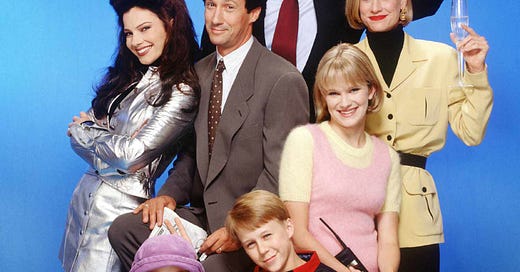


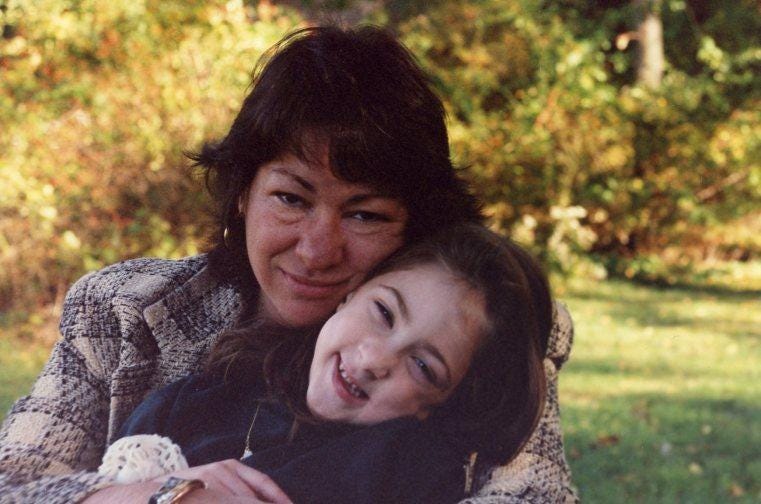
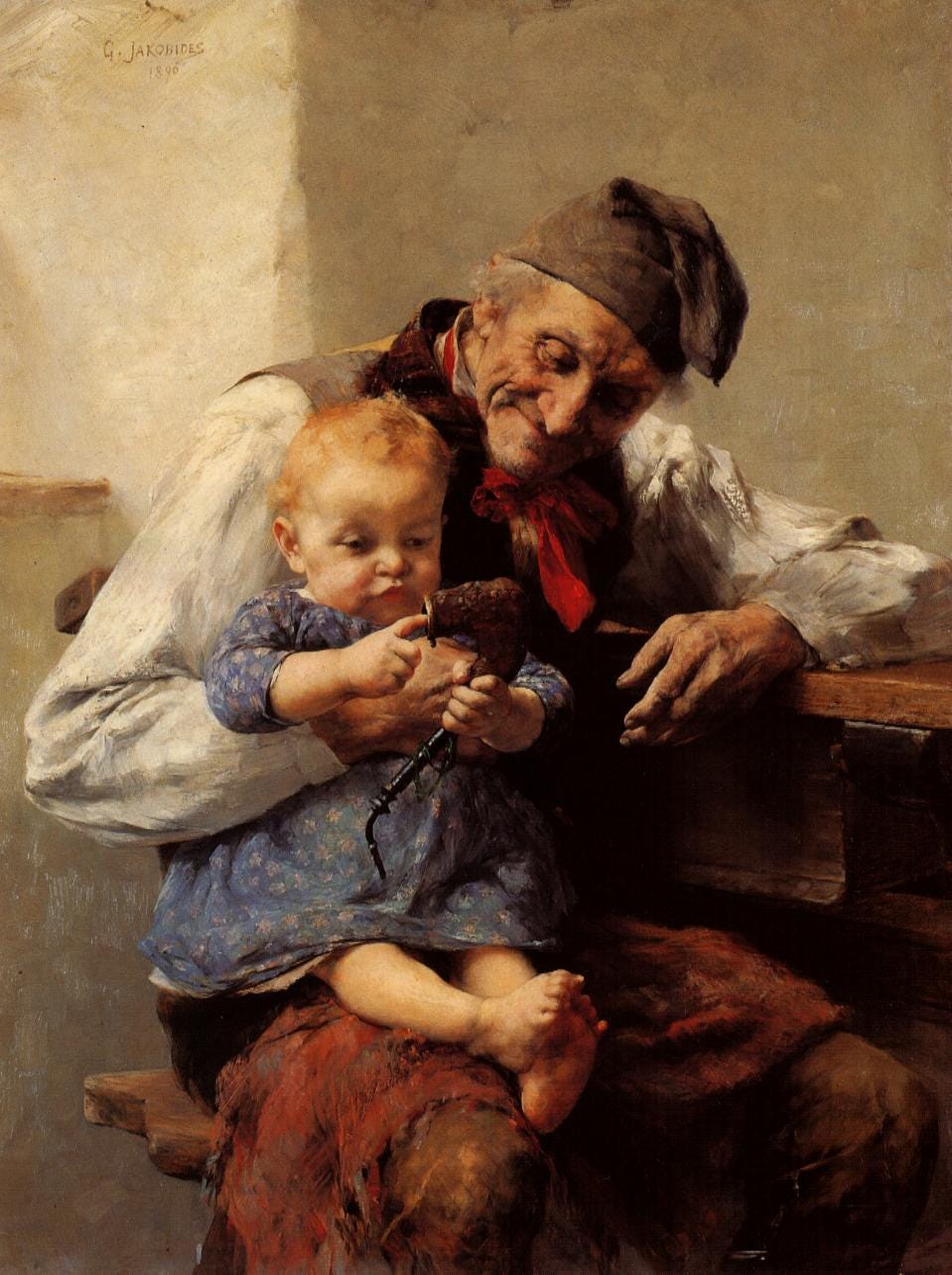

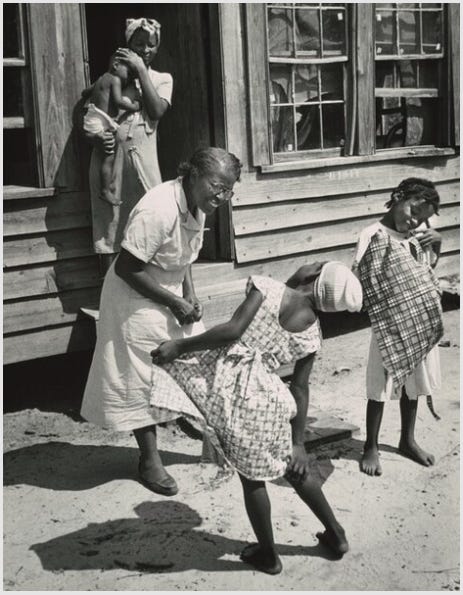
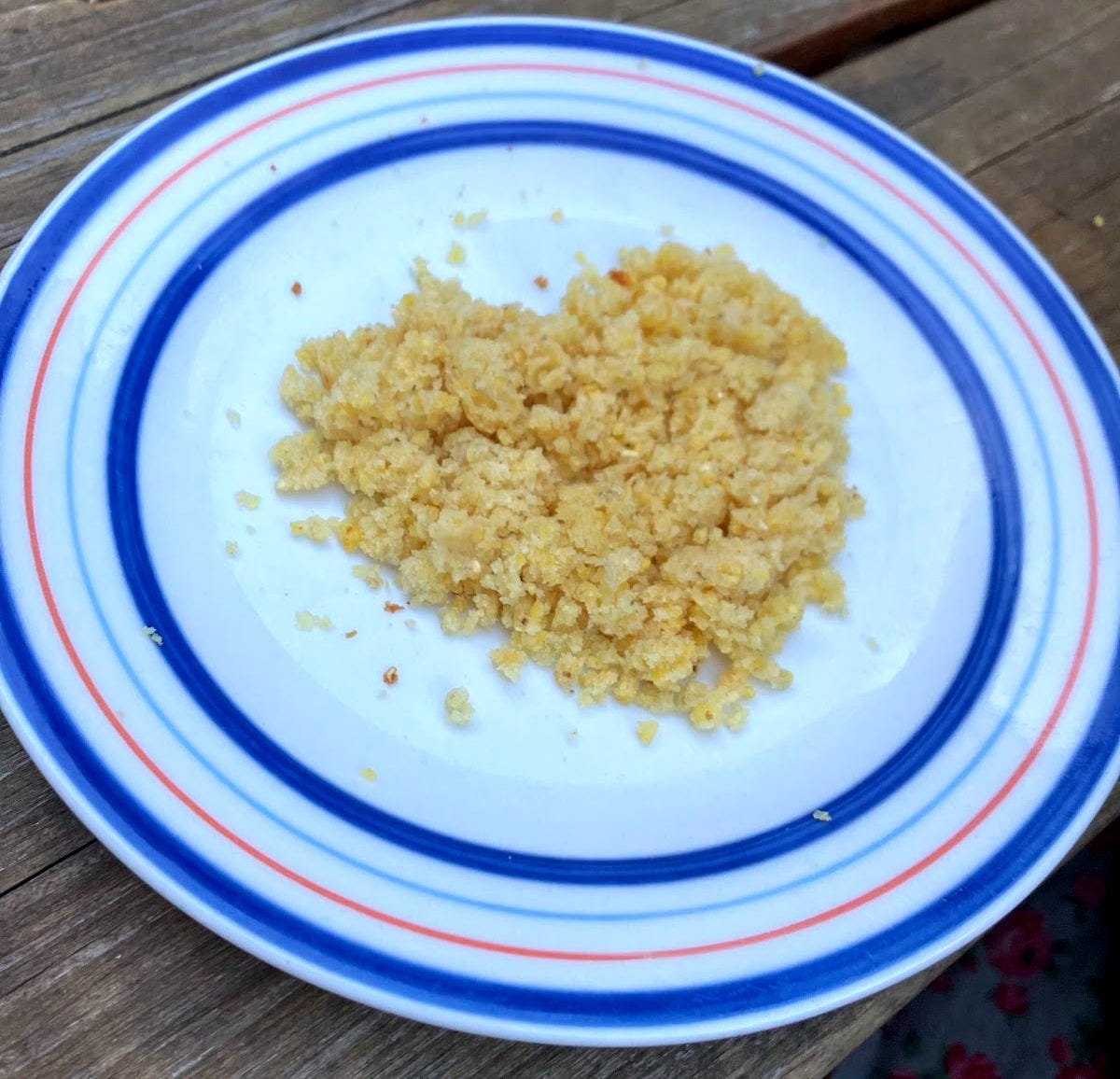
For gender neutral auntie, I am tante (said like tawn-tuh) to my niblings. One of our close friends is Norwegian - this is the Norwegian for "aunt" and she suggested it when we were discussing terms. The niblings aren't Norwegian (they're the younger siblings of a different friend) and in an English speaking country it's close enough to "auntie" that when they say "my Tante [Name]" people seem to recognise it means something like auntie. But it's not so gendered. Works for me! I've heard Titi and Zizi based on Spanish & Italian words for aunt/uncle too.
Another suggestion is let your kids pick the word. They're bound to mispronounce your name a bit if they are very little, or if they're older they'll love to come up with something silly :) I know that doesn't work as an overall term though!
I think being an Auntie who is raising their own kids is probably the easiest form. You're already where the kids are and on their schedule. Plus, adding more of other people's children is the easiest way to do anything with kids--although this might not be true if you are used to two adults and one child.